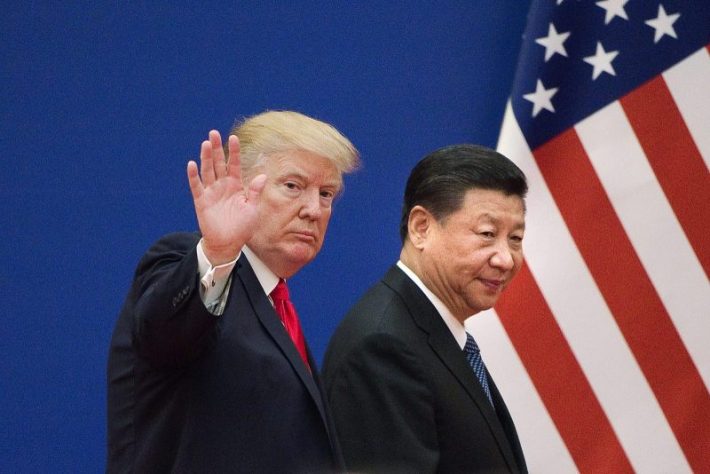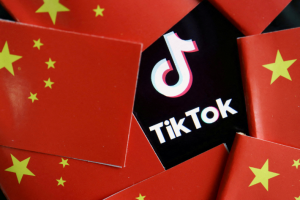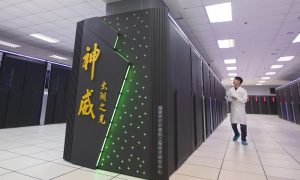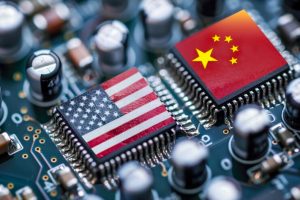Officials in both the US and China have voiced concern that US President-elect Donald Trump could discontinue talks set up by the Biden Administration to ease strains in their bilateral ties – and efforts to limit climate change.
Formal talks are being held on a range of critical issues, such as the South China Sea and stopping the flow of fentanyl to the US, but regional diplomats and analysts say these channels – seen as key to cooling tension – could be on the chopping block with Trump in the White House.
Improved communication between the two militaries has helped ease tension in regional hotspots such as the South China Sea, where Chinese and Philippine coast guard vessels and fishing fleets square off almost weekly, while the Chinese airforce keeps testing Taiwan’s defences with combat readiness patrols close to the island.
ALSO SEE: Trump Will Have Big Impacts on Trade, Climate Change, EVs
More work lies ahead to make them durable amid China’s military modernisation and US deployments that ensure its traditional dominance of the Asian theatre, analysts say.
Military ties could be cut
Some fear military ties could be the first to be jettisoned if there is fresh turbulence, pointing to the military chill lasting nearly two years after then-House Speaker Nancy Pelosi visited Taiwan in August 2022.
Communications have gradually improved on a number of defence fronts since Xi and Biden agreed to deepen relations when they met face-to-face in November 2023.
Biden’s national security adviser, Jake Sullivan, held a rare meeting with Xi’s key military adviser, Zhang Youxia, during three days of talks in Beijing in August. He has also held frequent intensive meetings with its top diplomat, Wang Yi.
The first talks between theatre-level commanders in September reflected a long US push to stabilise military ties and ease misunderstanding amid broader regional tension.
Some analysts say the US Indo-Pacific Command in Hawaii is likely to maintain deployments at current levels but short-term uncertainty over Trump’s approach would be keenly felt by both Chinese leaders and military commanders.
“In this scenario, I would expect the military leadership to be much more on edge in their deployments surrounding flashpoints such as the Taiwan Strait, the South China Sea and disputed areas with Japan,” Singapore-based security analyst Alexander Neill said.
“The leadership does not like unpredictability,” added Neill, a fellow at Hawaii’s Pacific Forum.
Shelved talks on China’s growing nuclear weapons programme will be another area of likely scrutiny in coming months, with the Biden team keen for progress but Beijing reticent.
Some analysts say Beijing, with an arsenal far smaller than both those of the United States and Russia, sees little upside in such talks.
“It is very telling that even during this current mild thaw between Washington and Beijing, Beijing still switched off arms control conversations with Washington earlier this year,” Jon Czin, a foreign policy specialist at the Brookings Institution, said.
Climate change
Climate diplomacy between the world’s top two greenhouse gas emitters helped build momentum for global pacts such as the Paris Agreement and played a key role in building consensus at last year’s COP28 meeting in Dubai.
With Trump expected to pull out of the Paris accord for a second time, the two countries’ cooperation on climate issues will come to an end, though subnational initiatives with the state of California and others are expected to continue.
Trump’s imminent return to the White House could also undermine efforts to persuade China to adopt more ambitious 2035 emissions-cutting targets, with Beijing already irked by US “green trade barriers” on electric vehicles, batteries and solar panels – and the EU’s plan to penalize companies linked to deforestation (which has been delayed for a year).
AI safety watchdog could be dismantled
Trump has said he plans to scrap President Biden’s AI Executive Order from October 2023 once he returns to the White House.
Biden’s order established wide oversight of AI development, with provisions to set up the US AI Safety Institute and orders for companies to submit reports on training methodology, security measures, and vulnerability testing data.
It also gave the Commerce Department’s National Institute of Standards and Technology power to draw up guidelines to help companies identify and fix flaws in their AI models. But they these have been slammed by Trump supporters who say are a “woke” burden that discourages innovation, according to a report by Arstechnica.
Trump’s tariffs might also interrupt the supply of GPUs that are necessary to accelerate AI training and inference tasks, it said.
Fentanyl cooperation
There has been incremental but visible progress in cooperation over shutting down illicit traffic in chemicals used to produce deadly fentanyl after Xi and Biden agreed to resume joint efforts at the November 23 meet.
The United States, where fentanyl abuse has been a major cause of death, has pushed China for tougher law enforcement, including tackling illicit finance and clamping further controls on the chemicals.
In June, China’s top prosecutor urged its law enforcement officials to focus on combating drug trafficking, as Beijing and Washington unveiled a rare joint investigation into drugs.
In August, days after a meeting of a joint counternarcotics working group, China said it would tighten controls on three chemicals essential for making fentanyl.
Economic issues
Less visibly, the two rivals hold regular meetings of working groups on economic and financial issues launched in September, 2023.
At one such meeting over two days in Beijing in September, Chinese officials expressed “grave” concerns about additional US tariffs, investment restrictions, and Russia-related sanctions.
The broader dialogue effort is important and yielded “meaningful progress”, Zhao Mingzhao, of Fudan University’s Institute of International Studies, said.
“But for Beijing, there is legitimate concern over these dialogues that, in a Trump presidency, could be halted, could be stopped again,” he added.
- Reuters with additional input (on AI safety watchdog) and editing by Jim Pollard
ALSO SEE:
US And China Expand Contact Between Their Military Chiefs
China Damns Latest US Ban on 42 Firms Tied to Russian War
Beijing Slams US For ‘Peddling’ China Nuclear Threat Fears
US ‘Looking Closely’ at China Banks Over War Aid to Russia
US Warns China of Sanctions: ‘Helping Russia Threatens Europe’
World Backs COP28 Deal to Reduce Use of Fossil Fuels
Xi Seeks to Reassure The US: ‘No Hot or Cold War With Anyone’
























